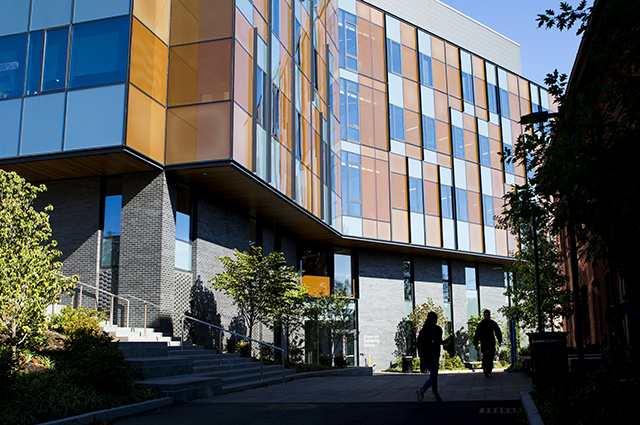Bioreactor designs to grow food

From growing sustainable meat using caterpillar stem cells to enhancing the color and texture of cultured meat, Stern Family Professor and Chair David Kaplan and members of his lab group are making waves in cellular agriculture. Their latest research will be supported by a $375,000 award from Merck’s competitive worldwide grant program.
The Kaplan Lab’s proposal for a new concept in bioreactor design to grow food was selected from 64 competitors from across the globe. The design is based on a textile engineering approach to structured foods, building on expertise in biomaterials, cells, and device designs.
The Merck grant program featured four research focus areas for 2020: bioreactor design for cultured meat, drug discovery, next generation machine learning, and pandemic preparedness. The Merck jury selected the Kaplan Lab’s proposal as the winner for the cultured meat category.
Led by Department of Biomedical Engineering researchers, Tufts has expanded its influence in the realm of cellular agriculture in recent years. PhD candidates Natalie Rubio, Andrew Stout, and John Yuen from the Kaplan Lab launched Tufts’ first course in cellular agriculture in spring 2020 through the Experimental College, and increasing numbers of Tufts alums have gone on to work in alternative protein innovation. Their ranks include Perfect Day Foods CEO Ryan Pandya, Legendary Vish CEO Robin Simsa, and Senior Lecturer Laura Joy Domigan of the University of Auckland.
Department:
Biomedical Engineering